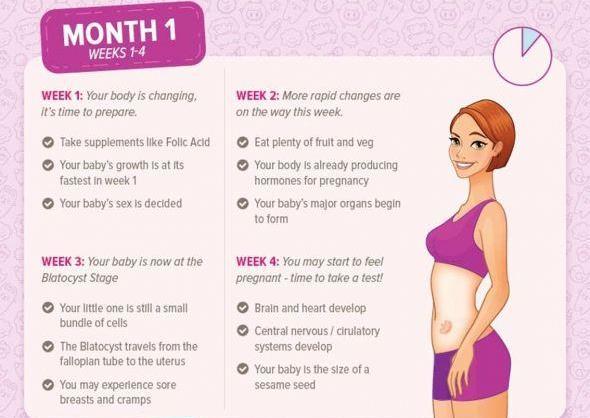Congratulations! Welcome to your first month of pregnancy. During this month your baby is just beginning to develop and you and your partner likely have many overwhelming feelings at this stage. While this is a normal feeling, it's important to know what to expect during this period of your pregnancy. Read on to explore what exciting transformations you can expect and learn valuable insights into prenatal care to support a healthy and joyful journey through pregnancy.
Key Points
- Limb buds will begin to form and the embryo will resemble a tadpole d during this stage of your pregnancy.
- Your baby the embryo is around half an inch in length and weighs less than an ounce.
- It's normal to experience symptoms of morning sickness as well as tender breasts and increased urination during this time.
- While it's important to supplement with folic acid, you should schedule an appointment with your doctor first.
Your Baby's Growth
During the first month of pregnancy, your developing baby — known as an embryo — will begin to undergo significant changes. Limb buds begin to form, which will grow into arms and legs. At this stage, the embryo resembles a tadpole. The heart and lungs are beginning to form, and around the 25th day, the heart starts to beat.
Additionally, the neural tube, which becomes the brain and spinal cord, also begins to form in the first month.
By the end of the first month, the embryo is approximately half an inch in length and weighs less than an ounce.
Your Body's Changes
The first change you'll most likely experience is a missed period, which is an indication of pregnancy. Your body is producing hormones necessary to nurture your baby. You may experience slightly larger and tender breasts. Morning sickness may occur, which can sometimes be relieved by eating crackers. You may have specific food cravings or an aversion to foods you usually like. Increased urination is common because your growing uterus is putting pressure on your bladder.
Essential Prenatal Care
It is important to supplement your diet with folic acid (it's found in most multivitamins) to reduce the risk of birth defects of the brain and spine. You should also schedule an appointment with your healthcare provider for your first prenatal care check-up as soon as you think you are pregnant.
Additionally, ask your healthcare provider before taking any prescription drugs or over-the-counter products and it is crucial to stop smoking and drinking alcohol.
The content of this article should not be considered professional medical advice. Exercise due diligence when seeking relevant health information. Always consult your healthcare provider before making any medical decisions.

